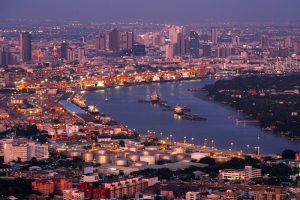(AF) An election in Greenland that could have changed the face of the global rare earth market has been won by a party opposed to mining the valuable commodities.
With 36.6% of the vote, the left-wing environmentalist Inuit Ataqatigiit (IA) party was ahead of Siumut, a social democratic party that has dominated politics in the Danish territory since it gained autonomy in 1979.
The dividing line between the two parties was whether to authorise a controversial giant rare earth and uranium mining project, which is currently the subject of public hearings.
The Arctic island of just 56,000 people holds some of the world’s richest deposits of uranium and rare earth minerals – a group of 17 metals used as components in everything from smartphones to electric cars and weapons.
Also on AF: Chinese investors now looking at rare earths as replacement for bitcoin
Exploitation of the deposits was hoped to lift the island’s economy and also boost the rare earth market, which is dominated by China. The world’s second-largest economy increased exports of the commodities by 28% in the first two months of this year as demand recovered in Europe and Japan, according to customs data cited by Argus Metals.
The IA has called for a moratorium on mining, which would effectively put a halt to the project at the Kuannersuit deposit, in the island’s south.
Snap election
Divisions over Kuannersuit originally triggered the snap election in the territory after one of the smaller parties left the ruling Siumut coalition.
One side of the Kuannersuit mountain is said to have been devastated by test drilling and the creation of an open pit by miners.
“Now that area is like all sand and just black,” campaigner Aili Liimakka Laueshe told NPR in the US. “There’s no green at all.”
Opponents say the project, led by the Chinese-owned Australian group Greenland Minerals, has too many environmental risks, including radioactive waste.
IA leader Mute Egede said on KNR public television he would immediately start discussions to “explore different forms of cooperation” before forming a coalition government.
The 34-year-old, who has been a member of the Inatsisartut since 2015, took over the reins of the left-green party a little over two years ago.
• Mark McCord with additional reporting by AFP
This page was updated to the new style format on May 30, 2022 and the headline amended.
ALSO on AF:
China opens rapidly-built national rare earths R&D centre
China sweats as world ramps up independent rare earth plans























